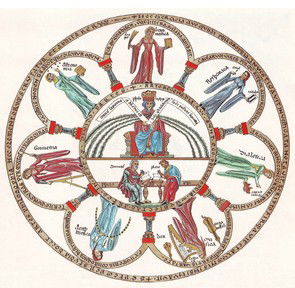11. History: Of whom was it said that if her nose had been shorter the history of the world would have been different?
From Quiz A Nose for the Liberal Arts
Answer:
Cleopatra VII of Egypt
"Cleopatra's nose, had it been shorter, the whole face of the world would have been changed."
Thus wrote the multi-talented Blaise Pascal in his 17th century work, "Pensées" ("Thoughts"). At the time, facial features were thought to reflect character traits: a prominent nose indicated dominance and strength of character, very necessary for a ruler dealing with the might of the Roman Empire. Pascal's comment perhaps meant that, with a smaller nose, the ingenuity and audacity of Cleopatra's interaction with Rome would have been absent, so changing the course of history.
Contemporary, or near-contemporary, sculptures of Cleopatra VII suggest a straight, longish, narrow nose; coins of the period also show a prominent nose.
Belle Starr (Myra Maybelle Shirley Reed Starr) was a female outlaw of America's Old West. She lived from 1848 to 1889, and contemporary images suggest that her nose was a little above average size and slightly tip-tilted.
Portraits of the Austrian-born Marie Antoinette (1755-1793), wife of Louis XVI of France, show a long, thin, prominent nose, but there is no mention that I can find of any variation in its size potentially changing history.
Wu Zetian (625-705) was a concubine of two successive Chinese Emperors, Taizong and Gaozong. After the death of Gaozong in 683, she deposed her son Emperor Zhongzhong and placed another son, Ruizong, on the Imperial throne. She finally took the throne from Ruizong in 690 to rule as Empress herself. By all accounts she was a ruthless and very capable ruler; images of Wu Zetian show a largish nose.
Hmmm, perhaps Pascal's observation has some general application, after all...
 The study of the disciplines considered the Liberal Arts has been the basis of much education since ancient times. They cover many areas, characterised by the fact that they are not primarily vocational, technical or religious in their focus.
The study of the disciplines considered the Liberal Arts has been the basis of much education since ancient times. They cover many areas, characterised by the fact that they are not primarily vocational, technical or religious in their focus. 





 Quick Question
Quick Question Top 10% Rated Quiz,
Top 10% Rated Quiz,
 Top 20% Rated Quiz,
Top 20% Rated Quiz,